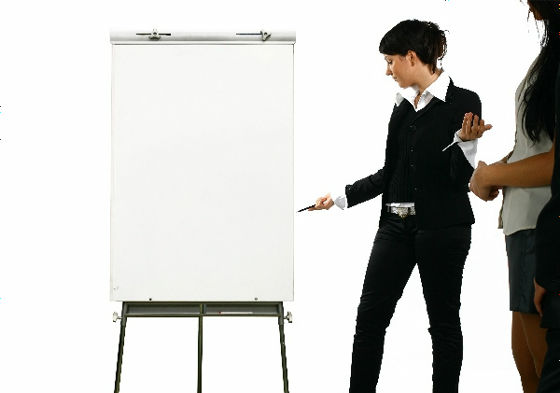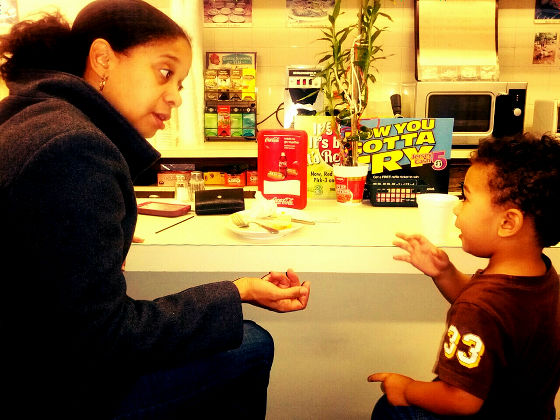7 things your child really needs to master in school

by
Good test scores at school do not necessarily translate into success as an adult, and as a result, school education assessment methods and test administration are being revised. Developmental psychologist Susan Engel, who has assessed over 300 tests over the 13 years from kindergarten to high school graduation, has listed ' seven things children need to master ' based on her experience, and has compiled key points and assessment methods for helping children acquire these seven skills through school education.
7 things every kid should master - Magazine - The Boston Globe
http://www.bostonglobe.com/magazine/2015/02/26/things-every-kid-should-master/uM72LGr63zeaStOp9zGyrJ/story.html
1: Reading ability

by
According to Engel, all children should acquire the ability to read by the time they graduate from elementary school, and it is important to develop the habit of reading books regularly for information gathering and enjoyment. When children can 'read' things, their way of thinking changes from when they couldn't. It is also important that they acquire the ability to read, as it enables them to gather information in the real world and develops the ability to converse with others.
One way teachers can assess a child's reading ability is by observing how they think and use language. For example, developmental psychology uses recordings of children's speech to measure their intelligence. Grammatical complexity and vocabulary size are important indicators of a child's intelligence, so teachers can measure a child's ability from the sentences they speak, rather than simply administering a written test.
2. Questioning skills

by
Children have an impulse to understand things, but in many cases, school education does not place emphasis on 'questioning.' As a result, children ask fewer and fewer questions when they go to school, stop exploring, and lose their curiosity. This creates a contradiction: an education system that demands scientific discovery and innovation suppresses the 'impulse' that is essential to 'learning.'
Engel recommends encouraging children to ask questions and measuring their abilities based on them, as opposed to existing educational methods like those mentioned above. Past research has provided several indicators for measuring children's abilities, such as whether they ask questions that lead to data-based answers, whether they continue to ask questions when they don't get the right answer, and whether they use various methods to get answers, such as asking multiple people or using a computer.
3: Flexible thinking and the ability to explain

by
One of the important skills students acquire at school is the ability to consider a situation from multiple perspectives. College students are often given essay assignments that ask them to 'Choose one thing you're good at and explain it to the reader.' This test asks students to describe their knowledge of the subject, assessing whether they can explain the task logically from the perspective of the person understanding it, and accurately convey the gist and information. In addition to the above question, there's also another that asks, 'Describe yourself from a friend's perspective.' Engel says that education designed to measure and develop this kind of 'explanatory ability' should begin in elementary school as well.
4. Conversational ability

by Anthony Mendez
It is well known that conversational skills are required in many situations in adulthood, but past research has shown that 'conversations with adults' are extremely important for children. In one study, 'conversations between children and their parents at home' were recorded and the data was later analyzed. It was found that many conversational methods, such as how parents ask and answer questions, how they guide children to answers, and how they find out what their children know and what they are thinking, are passed on to their children. Children can also see new worlds they did not know through conversations with their parents.
On the other hand, children from poor families may not talk much with their parents or may have poor listening skills. In such cases, teachers need to have more in-depth conversations with children at school, but few teachers place importance on conversations with children. Even if the importance of conversational ability is understood, measuring conversational ability is extremely difficult. There are too many things to look at, such as the length of the conversation, the number of interactions with the other person, and the number of topics covered. However, Engel says that if teachers knew that 'conversations with children are valuable and that children can be evaluated based on conversations,' they would try to improve their children's conversational ability.
5. Collaborate with others

by
Discord is inevitable in the world of children. For example, imagine a popular kid named Sean at school who gathers his favorite friends together for lunch in the cafeteria, but Quinn, a short, plain-looking boy who wears glasses, is left out by Sean, and gradually begins to tell his mother that he 'doesn't want to go to school.'
Stories like the one above are common in every school. While it's important for teachers to support kids like Quinn, they also need to teach kids like Sean to control their urges to dominate others.
One of the key findings in developmental psychology is that children learn how to treat others by observing how adults treat them. Given this, it's important for teachers to not just preach to students, but also to consider how they behave toward other teachers and students on a daily basis. Kindness and teamwork don't develop overnight, but teachers must create an environment where students can cooperate.
6. Immerse yourself

by
According to educational philosopher Harry Brighouse, being able to concentrate on one thing for 20 minutes is the most important cognitive skill that can be acquired in school. Of course, people's concentration levels vary, and some people can concentrate from the very beginning, while others take a long time to achieve that state, but it is generally believed that students can achieve a basic level in school.
To achieve this level, it is important not to demand high levels of concentration from children or scold students who appear not to be concentrating, but to check that students are given a variety of opportunities to immerse themselves and that they are concentrating on the opportunities they are given.
7. Stay healthy

by Len Matthews
The most important thing for children in school is to feel satisfied with their school environment. Economists and psychologists have shown that people are reliable when talking about their happiness. Engel says we should measure children's well-being by asking them questions like, 'How do you feel?', 'Do you feel understood by adults at school?', and 'How interested are you in the work you're doing?'
While it's common to measure children's growth and learning through written tests, Engel says the seven things above are important for freeing children and allowing teachers to do meaningful work.
Related Posts:







